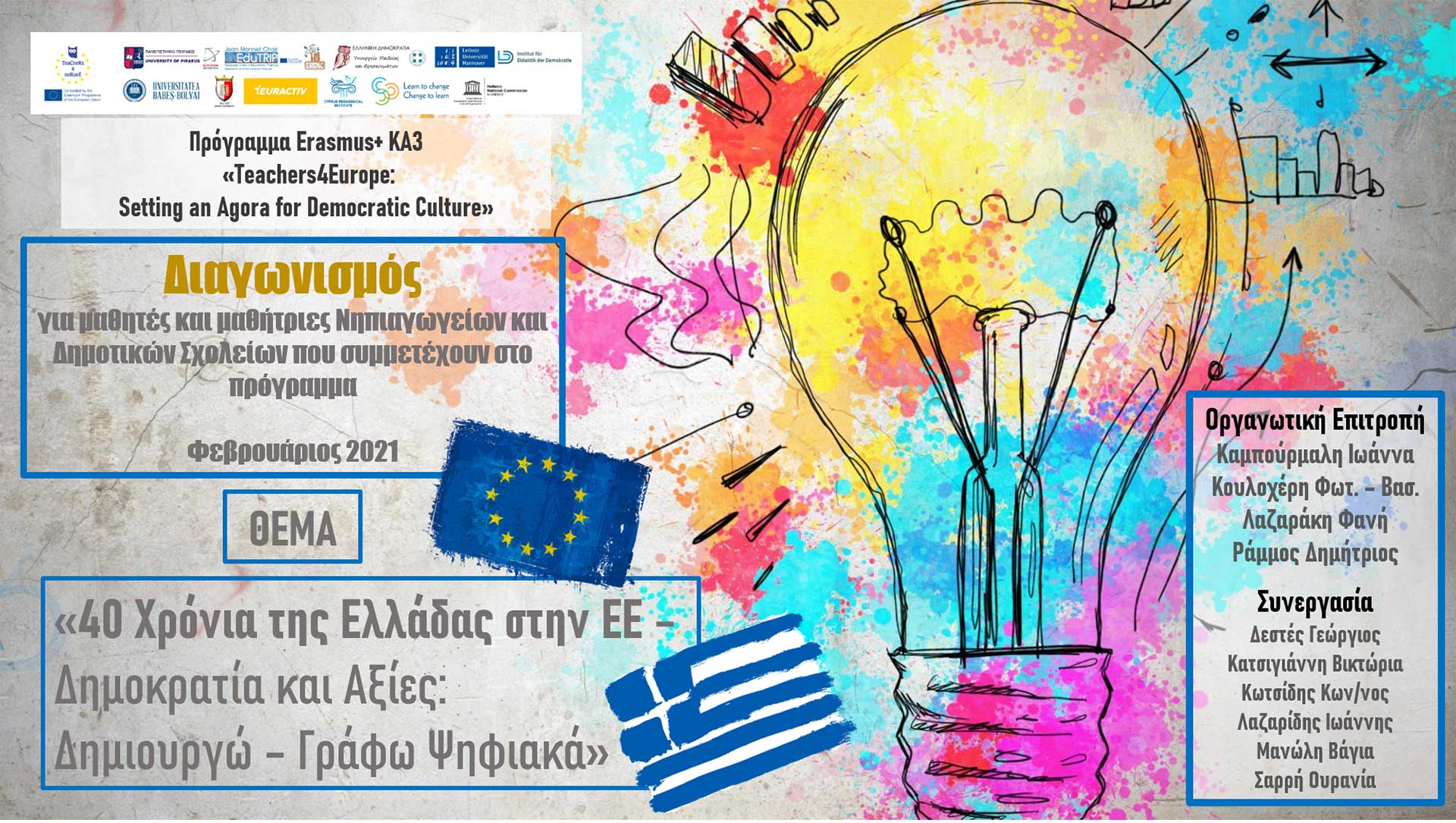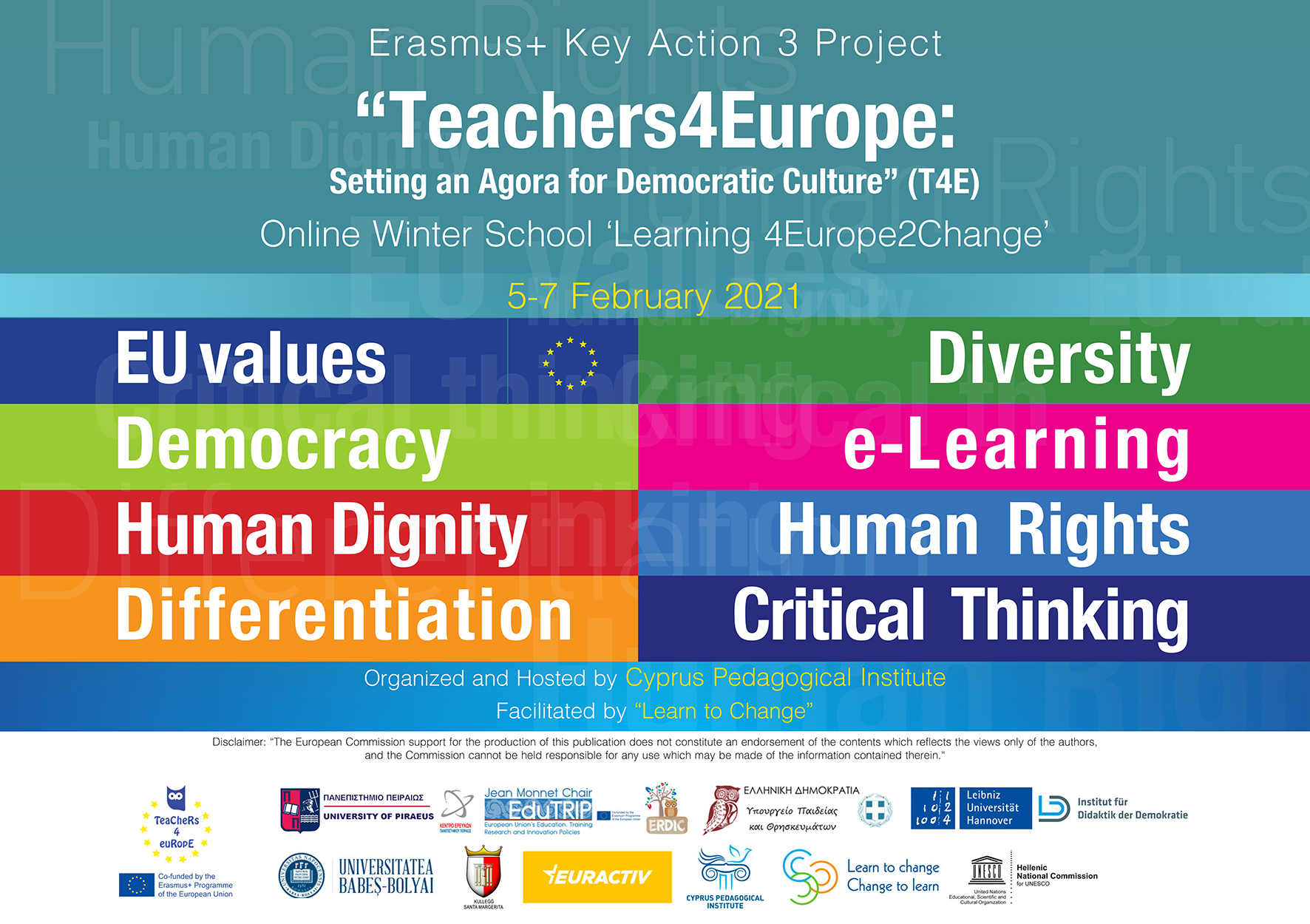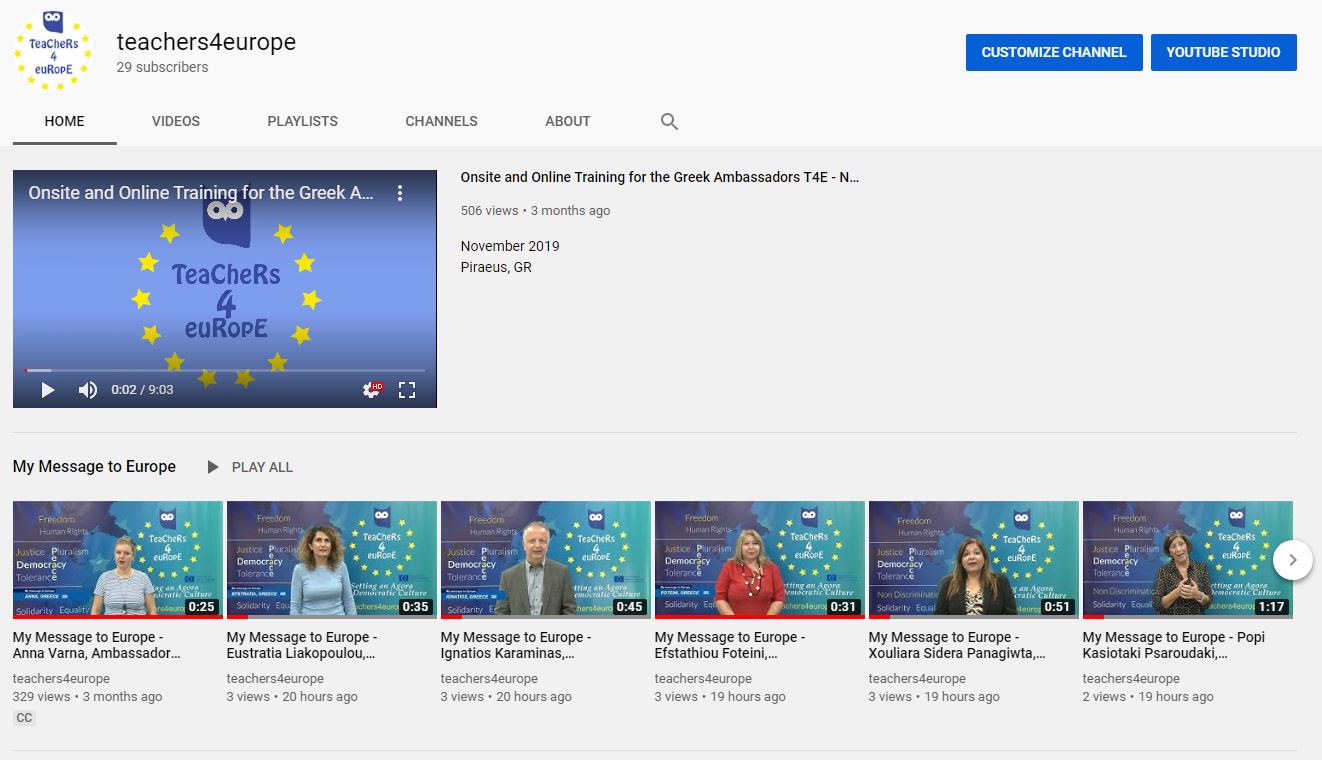
The Ambassadors of the 1st, 3rd and 4th District of Athens, Piraeus, Corinth, Magnesia and Germany for the European Program “Erasmus+ 2 KA3 018-2021 – policy making – entitled “Teachers4Europe: Setting an Agora for Democratic Culture” are extending a call to speakers and facilitators interested in participating in the interdisciplinary online conference on the topic of «Mobbing at work against democracy », which is scheduled to take place on Saturday 14-05-2022 and Sunday 15-05-2022 as part of the above mentioned program.
The Program “Erasmus+ 2 KA3 018-2021 – policy making – entitled “Teachers4Europe: Setting an Agora for Democratic Culture” is implemented by the Research Centre of the University of Piraeus with the participation of the Jean Monnet Chair in the Policies of Education, Training, Research and Innovation of the European Union, the Department of International and European Studies, the Ministry of Education and Religious Affairs and the Greek National Commission for UNESCO, as well as in cooperation with Ministries of Education, Research Centres, Universities and educational institutions of Cyprus, Germany, France, the United Kingdom, Malta and Romania, which are partners in the Program.
The Program is innovative and aspires to deal with a number of challenges, employing education as a vehicle to promote principles and values, including the democratic culture of the European Union, which contributes to the endorsement of EU as an entity that operates on various levels in favour of all people, irrespectively of their identity. Through this scheduled interdisciplinary conference, the Ambassadors Teachers4Europe who are hosting the two-day event act as social and cultural agents, by promoting the European democratic values, the fundamental human rights, intercultural understanding and the acquisition of relevant knowledge, delving into current challenges that pertain not only to the school environment, but to other aspects of everyday life such as the workplace, with an aim of promoting dialogue, encouraging initiatives to further support human rights and true democracy in general, and by extension reinforcing the improvement of the quality of education and training as well as of living conditions.
The interdisciplinary conference entitled «Mobbing at work against democracy» aspires to constitute a forum of academic-educational dialogue and of the presentation of scientific data, reviews, theoretical studies and practices with regard to abusive behaviours and types of harassment (like moral, psychological and physical) in the workplace with short-term as well as long-term negative consequences for employees themselves, their families, the workplace and the community.
The conference includes presentations and workshops on the basis of the democratic values and the fundamental human rights on the following tentative topic options:
- Definition and clarification of concepts through exemplification
- Types of abusive, harassing behaviours and their attributes
- Causes of abusive, harassing behaviours
- Abusive, harassing behaviours towards socially vulnerable groups
- Consequences of mobbing for the person, their families, the workplace and the community – Health consequences – Social exclusion
- Presentation of the scope of mobbing based on research in Greece and the EU
- Existing legislature in Greece and the EU – Policies and management models of abusive, harassing behaviours at the workplace within the EU
- The role of positive psychology in handling the situation – Qualities of effective human resource administration – Mediation
- Strategies of treating mobbing on the level of practices in the workplace and on the level of seeking and receiving assistance from specialists such as lawyers, psychologists, social servants
30 minutes will be allocated for each presentation (20’ for presentation and 10’ for questions), and 30’ to 45’ are allocated for each workshop. The working languages will be Greek and English. The proceedings of the interdisciplinary e-conference will be published by the University of Piraeus.
Important deadlines to remember:
- Call acceptance and submission of tentative paper/workshop title: 09-03-22
- Abstract submission (paper/workshop): 10-04-22
- Full text submission (paper/workshop) for publishing: 31-05-22 (Email address: This email address is being protected from spambots. You need JavaScript enabled to view it.)
Your acceptance of this call and the submission of a paper/workshop on your preferred subtopic will be of great honour for us.
We are looking forward to hearing from you.
Sincerely,
The Ambassadors Teachers4Europe & Organizing Committee
Destes George UE70, M.Sc., PhD cand. NKUA
Katsigianni Victoria Educ. Coordinator UE70 Piraeus
Kostoudis Konstantinos MA Ling., MA Cont. Ed.
Lazaraki Fani UE70, UE23, MEd Adult Educator
Plakarou Eftyhia UE70
Dr Kampourmali Joanne
Dr Kuloheri Fot.-Vass. EdD, MA Appl. Ling., RSA DOTE Dist. Lang. & Meth., Adult Educator
Dr Kotsidis Konstantinos
Dr Manoli Vaia
Rammos Dimitrios UE70, ΜΑ Educ., PhD cand. UWM







